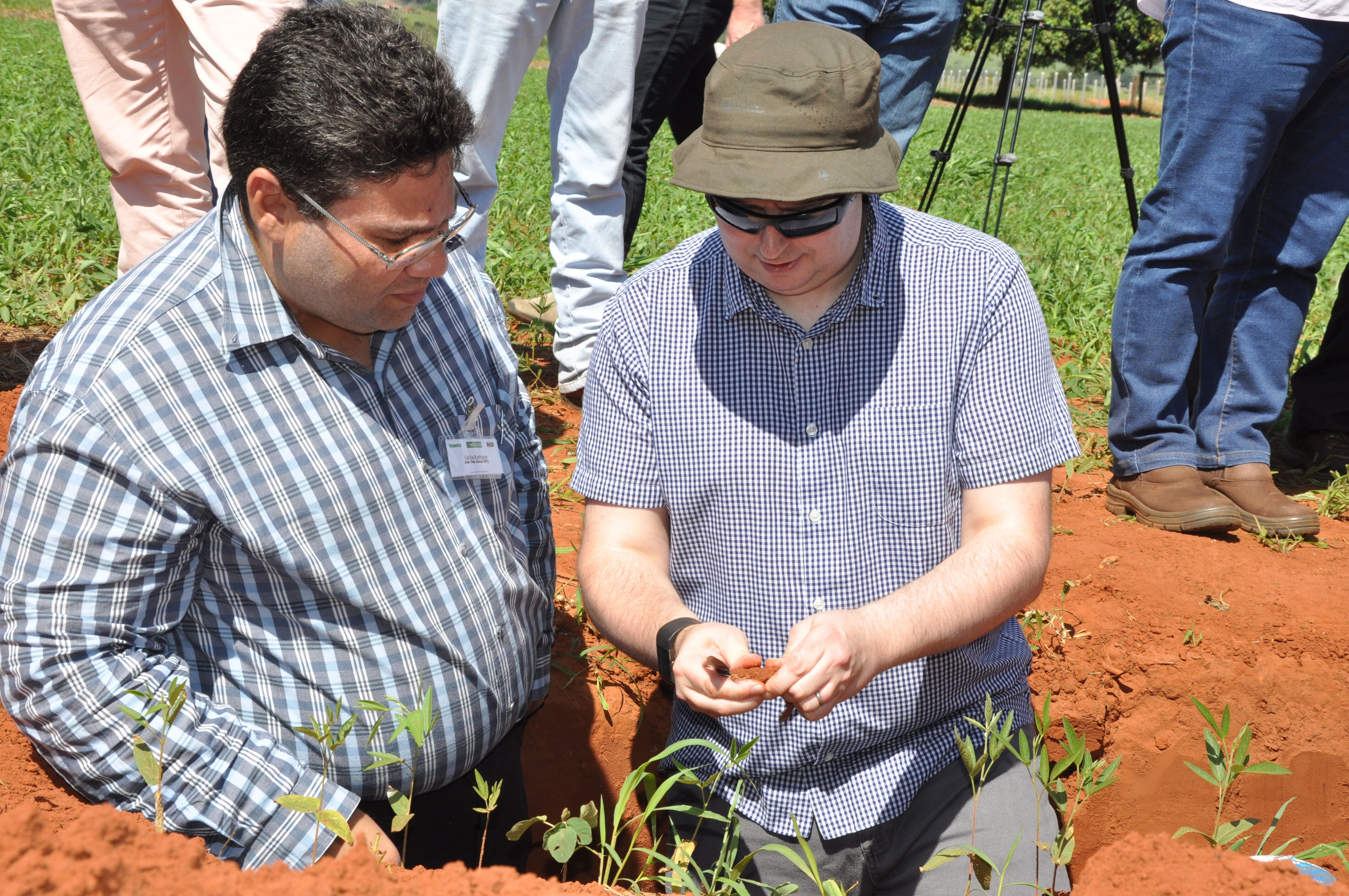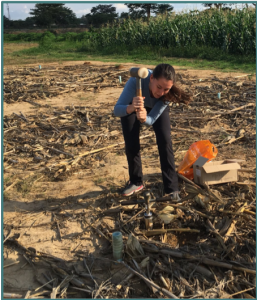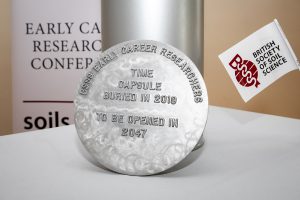
December 5, 2019, by Emma Allaway
Prof Sacha Mooney buries time capsule on World Soils Day
Thursday 5th December is World Soils Day, an annual focusing of attention on the importance of soil, endorsed by the United Nations General Assembly in 2013. We rely on soils for a wide range of functions, but perhaps most importantly, for our food. Up to 95% of all the food we eat originates from soil. However our soils are under threat from many sources including increased intensification of agriculture, loss of quality land to urbanisation and unpredictable changes in climate. This year, the focus for World Soils Day is soil erosion. The processes of soil formation are slow; soils typically develop over 10s to 100s of years. However, the loss of soil from erosion can be very rapid. The new FAO campaign ‘Stop soil erosion, save our future’, which aims to raise awareness of the importance of sustaining healthy ecosystems and human well-being, suggests that an area the size of a football pitch can be lost to soil erosion every 5 seconds, a staggering thought… Indeed this is made worse as once lost from a field, soil is rarely returned to its original location, leading not only to a severe loss in the fertility of the soil, but significant environmental pollution associated with where the soil is eventually deposited and, on occasion, loss of life when landslide events occur.

Soil erosion is a significant threat to global food supplies and food safety which is why sustainable soil management strategies seeking to prevent soil erosion and improve soil health are a research priority for the soil scientists at the UoN’s Hounsfield Facility (www.nottingham.ac.uk/microct) led by the Director, Professor Sacha Mooney. This year, on World Soils Day, Professor Mooney will be at Rothamsted Research in his other role as the President of the British Society of Soil Science. The Society, established in 1947, is commemorating the important date by burying a time capsule, prepared by the Society’s Early Career Researchers including several from the University of Nottingham such as Hannah Cooper, a PhD researcher exploring the impact of ploughing on greenhouse gas emissions.

The time capsule includes a variety of ‘soily’ artefacts including small pieces of equipment, important analytical methods and letters from current researchers to their future selves. In 2047, the capsule will be excavated as part of the Society’s 100 year celebrations and hopefully provide inspiration to the early career researchers at the time, as well as an opportunity for reflection for the current group. Professor Mooney, who contributed a letter to the time capsule said “writing a letter for 28 years in the future is an interesting challenge. Of course we have many genuine concerns at the moment; soil degradation is accelerating, the pressures on farmers to provide our food with less agro-chemicals, less land and a changing climate are unprecedented. However, there has never been a more exciting time to be a soil scientist! We sit at the heart of many of the grand global challenges. Our research has never been more valuable. Government are really starting realise the vital importance and value of soils. So my message to the researchers of 2047 was one of hope; hope that soil scientists had, and continued to play, the crucial role needed in supporting society and life on earth by protecting and preserving our soil’.
Photograph of time capsule kindly provided by D.Evans.
No comments yet, fill out a comment to be the first

Leave a Reply